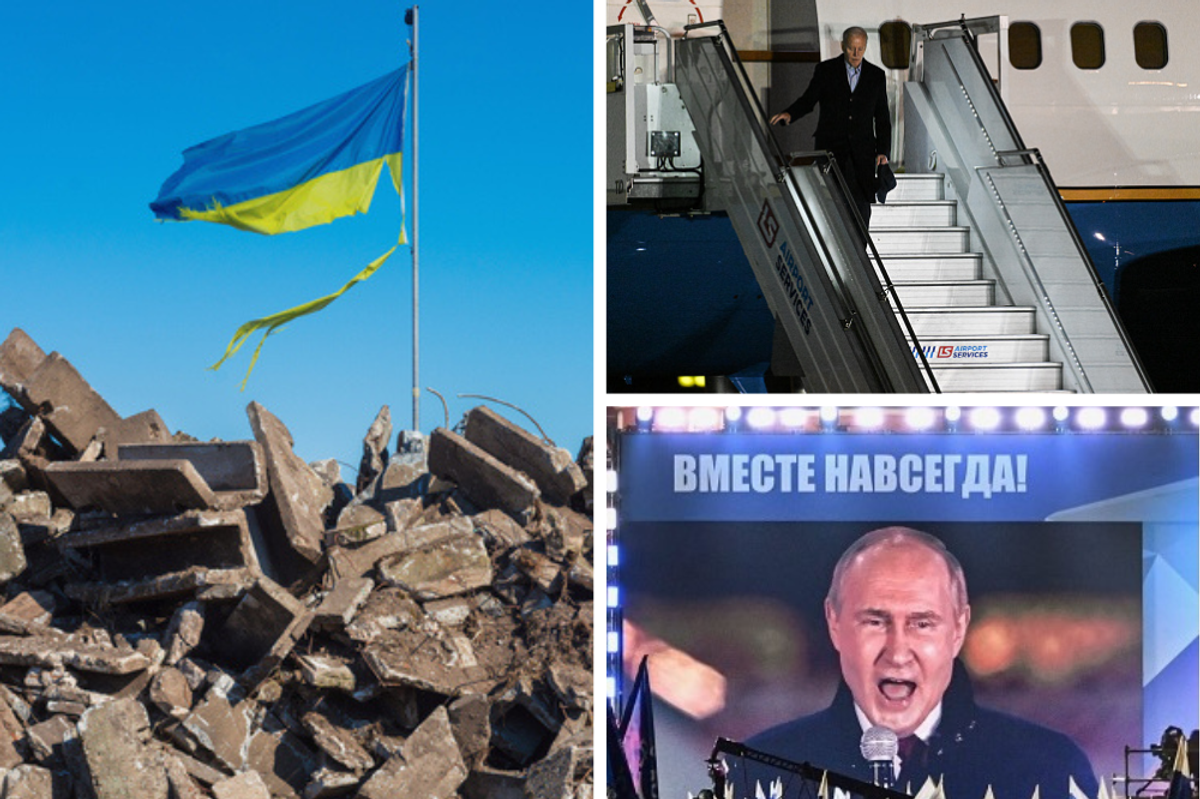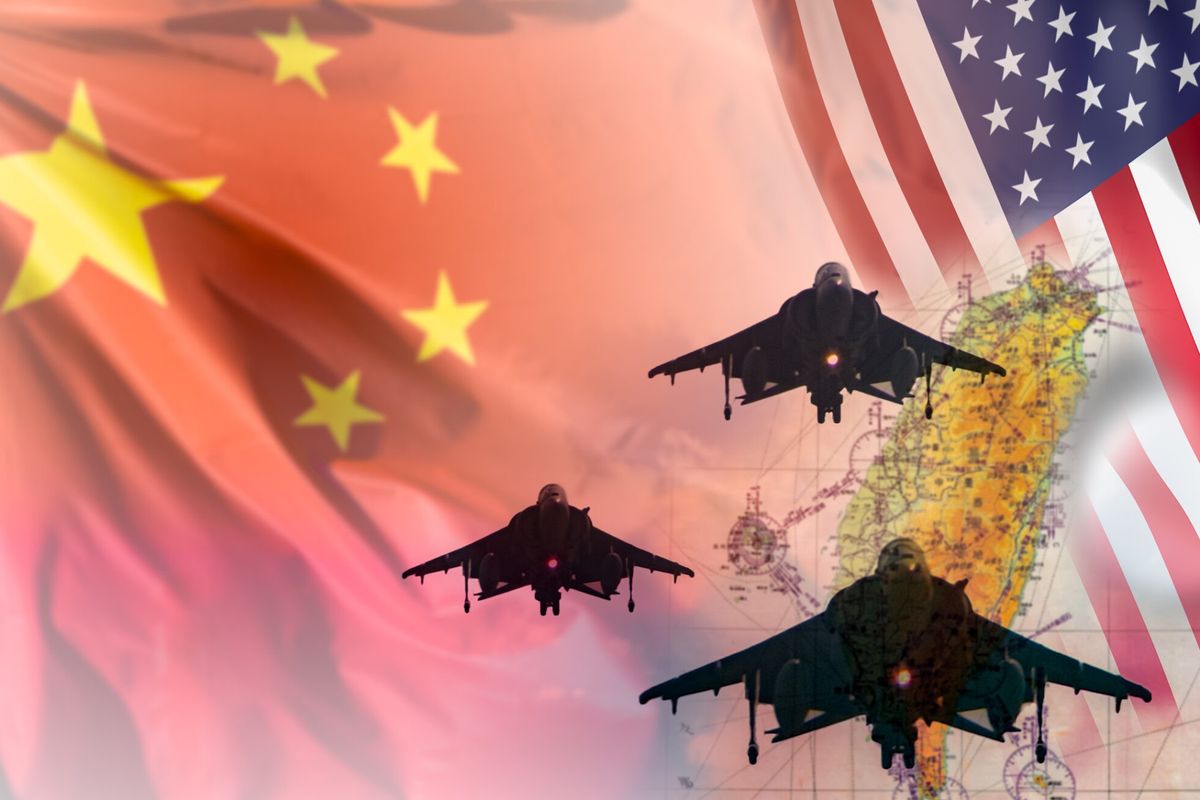The Cipher Brief sat down with Robert Richer, former CIA Associate Deputy Director for Operations, to talk about his memories of September 11th, 2001 and his thoughts on what the U.S. has learned over the last fourteen years of war.
The Cipher Brief: Where were you on September 11th and what do you remember most from that day?
Rob Richer: On September 11th I was in my office at CIA headquarters. The TV was on behind me and turned to CNN. I was in the middle of a staff meeting and my secretary was glancing over my shoulder at the TV because of the breaking headlines. She stood up, pointed at the TV, and said, “Boss, we need to look at that.” That’s how I found out.
TCB: As a senior officer in CIA’s directorate of operations you were very involved in the agency’s response to the attacks. What were the early days of the War on Terror like?
RR: During the early days there was directed confusion. By that I mean we knew exactly what we needed to do – we had to take the war to the enemy; they started the war. Getting there was hard. Our resources weren’t aligned where they needed to be, and there were multiple things going on in the world. Although counterterrorism was a major priority, we were still conducting all the traditional clandestine service activities, whether it was economic collection, working against Russia, looking at China, etc. We were doing all of these things at the same time. I remember those first couple of months vividly because we had to move people. We had to recreate the counterterrorism side, find a man to lead our effort in Afghanistan, empower Cofer Black – chief of the counterterrorism center – to do what he needed to do, and reach out to allies and convince them that this was not only an attack against the United States, it was an attack against the fabric of civilization. Of those 3,000 plus people that were killed, there were more than 30 nationalities. There were Muslims, Christians, agnostics, every religion, every type of person, men, women, children, young, and old. This wasn’t an attack against the United States, it was against the world economic order – it hit Wall Street – and it was an attack against everyone.
TCB: What advice would you give to the current generation of CIA officers, the ones who are grappling with the threat from ISIS?
RR: The current generation of officers who have been doing this for 5-10 years has grown up only knowing the War on Terror, and they get it. They understand the target, the integration and infusion of technology, and all aspects of the collection cycle. They are where we need to go. But, it’s still hard to internalize that this threat is not going away. During World War II we knew we had to get rid of Hitler and stop Japanese expansion. With Korea, we had to protect half of a peninsula. Vietnam was a political war, but we knew who the enemy was – Communism. Now we don’t know who the enemy is going to be a couple of years down the road. ISIS, or Daesh, didn’t exist 5 years ago. How do you train officers to go against a target 5 years from now when we don’t know what that target is going to be? Today’s officers have the skills and are unbelievably flexible about how they move from target to target. That flexibility is the most critical element because the targets they are studying as they go through training and know today are going to be different targets 5 years from now.
TCB: The United States government has successfully dismantled core al-Qaeda in Pakistan. What are the lessons we can draw from that experience and apply to ISIS?
RR: First, al Qaeda in Pakistan was based in a country that had at least some interest in working with us. Core al Qaeda was a threat to Pakistan both domestically and in terms of support they received from the west. We had a host country that saw it in their best interest to let us do what we needed to do and at times support us. We had a relatively favorable battlefield, if such a thing exists, where the host country agreed to what we were doing.
The second thing was the great fusion we had between the U.S. military and the Afghans, which provided us with the ability to conduct cross border operations with Pakistani support or approval. We also had great integration with foreign intelligence services, such as the British and intelligence services from Arab countries that could penetrate these groups. What we can learn from this is twofold. One, we have to try to own as much of the battlefield as we can. Two, this can’t be our battle alone. We have to be integrated, whether it’s with our military colleagues, or more importantly, with our foreign colleagues who understand the war in ways we don’t because it’s a threat to their very existence and way of life. For us, it’s offshore. While the average American saw the headlines and knew about the drone attacks, they generally did not wake up thinking about al Qaeda in Pakistan when it was being dismantled. However, for those Arab countries that wanted to live and survive, they understood that this was about their very survival. So the integration of all U.S. force capabilities, owning as much of the battlefield as possible, and working with regional or local partners are key.
TCB: How has the Middle East, and particularly relationships in the region, changed in the last 10-15 years?
RR: It’s possible to draw an analogy to what the world was like when there were two superpowers – the U.S. and the Soviet Union – when extreme political activities were balanced by opposing force. There was always a yin for a yang, someone to push back if one party was perceived to be getting too far ahead of the other. There was a balance in the world. In the Middle East there was also a balance in terms of Sunni and Shia, and the conflict today in many ways comes out of the competition between those two aspects of religion. While Iraq was governed by a dictator, it served as a buffer against what Sunni Arabs saw as Iranian expansionism. You had a country, which in many ways was the regional Arab military superpower, acting as a wall against what many Sunnis viewed as Iranian and Shia expansionism. What has changed critically is that buffer is gone. Today, Iraq is a melting pot of religious conflict, corruption, and both Western and Eastern interests. Consequently, what you now have is empowerment on one side of that process, Iran, and we see that in Yemen. Prior to 9/11, Iran was very cautious to show expansionist ambitions or to empower its surrogates—as they are currently doing with the Houthis in Yemen—after having fought stalemate wars with Iraq. The Saudis were an economic superpower, but very subtle about it. They put money where they wanted to influence things. Unfortunately, that money helped lead to the rise of ISIS and Islamic extremist groups, which in some ways take on characteristics of Wahhabism. Saddam Hussein, though a dictator, tolerated religious freedom and most certainly disliked any sort of religious extremism. Now the Saudis have changed from being the guy with the money pulling economic strings under the table and putting puppets in play, to having to be a regional player. They are using their own military force to fight in Yemen. That’s not their skill set. And while there has been some progress in their efforts, including pushing the Houthis out of Aden and maybe even out of Sanaa, the stabilizing factor afterwards is going to be a problem, because the Saudis don’t want to stay, and the UAE and the others helping are also not going to want to be there. So what’s changed is there is no superpower or overwhelming presence which brought a balance to the Middle East.
Furthermore, prior to 9/11, terrorist groups in the Middle East, such as the Abu Nidal Organization, the PFLP-GC, and other groups of the 70s and 80s, were primarily Sunni driven yet politically centered. They didn’t like the West and they had a revolutionary nature. But those groups were targetable, and could be kicked out of a country, because countries allowed them to stay, meaning there was some control over them. The groups of today, however, are driven by extremist idealism, and these people don’t care who’s in charge. They are not willing to be muzzled. So what’s changed is the dynamic of the area wherein there is no buffer against the religious aspects of this conflict, Sunni-Shia, which has a huge impact. There is no longer one state that can act as the buffer, which was Iraq. Thus, the political changes in the wake of 9/11, particularly in Iraq, in many ways have initiated and been part of the base for what’s currently happening in Syria and Iraq.
Rob Richer retired in November 2005 from the Central Intelligence Agency as the Associate Deputy Director for Operations (ADDO). Prior to his assignment as the ADDO in 2004, Richer was the Chief of the Near East and South Asia Division, responsible for Clandestine Service Operations throughout the Middle East and South Asia. Mr. Richer currently consults on Middle East and national security issues and is a senior partner with International Advisory Partners.













